Ben-Hur
Studios: Bazelevs Productions, Lightworkers Media, Sean Daniel Productions
Publisher: Paramount Pictures
Platforms: Cinema
Release Date: 25 August, 2016 – Tickets available here
Overview
The 1959 film adaption of Ben-Hur by William Wyler is considered a classic of cinematic spectacle and the power of the Hollywood studio system. Everything about this production was epic in scale with thousands of extras being used and one of cinema’s longest scores. The sheer size of this production gave rise to the saying “Bigger than Ben-Hur” when attempting to describe scenes of film spectacle. Fast forward to 2016 and we ask ourselves, is this new adaption by Timur Bekmambetov a reimagining of the old cinematic epic or does it fall short?
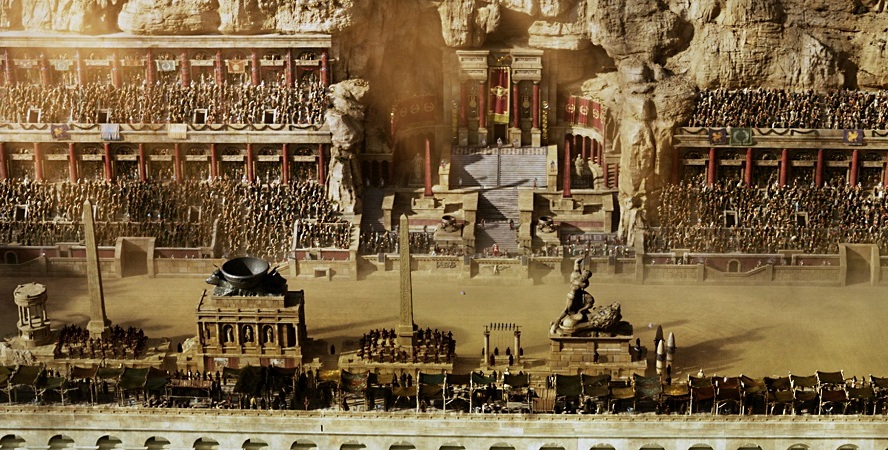
Story
The story largely holds true to the narrative arc of its cinematic predecessor and follows along with the trials and travails of the eponymous Jewish noble, Judah Ben-Hur (Jack Huston), and his adopted Roman brother, Messala (Toby Kebbell). Due to his Roman heritage, Messala feels alienated from the Jewish family he’s adopted into and decides to seek his fortune by enlisting into the Roman army. The story jumps ahead three years with the populace of Jerusalem firmly under the Roman yoke of occupation and Messala returning home to see his adopted family. After Judah shelters an injured Jewish insurgent against the Romans, who thanks him for his hospitality by implicating him in a plot to kill the Roman prefect, Messala is forced to destroy the place he once called home and punish those he once called family. Judah is sentenced to life as galley slave and the two brothers blame the other for their perceived betrayals. The stage becomes set for a clash between these characters as the brothers’ fight takes shape as the struggle between the Roman occupiers and the occupied.
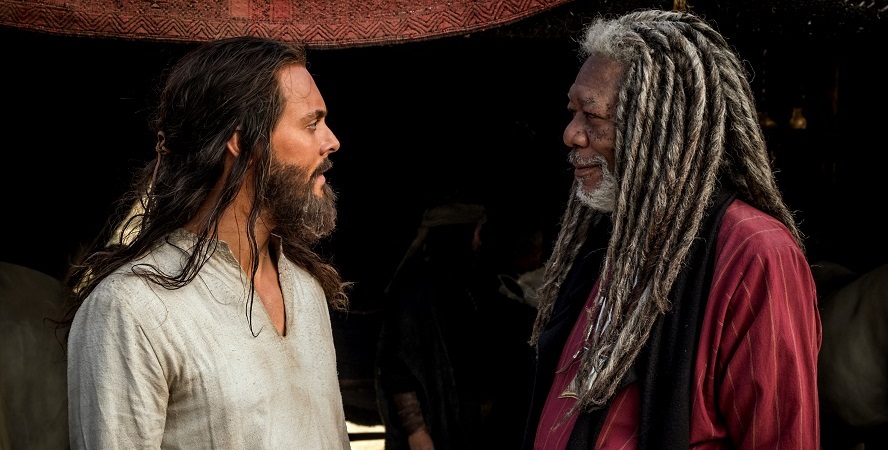
While watching this film, I was constantly attempting to figure out whether or not the script was terrible. Pretty much nothing in this film had any emotional impact whatsoever and not even the gratuitous cameos of a Christian messiah appeared to hold any weight onscreen. There are certainly some lacklustre narrative moments, especially concerning the film’s denouement (which was far too saccharine for my tastes), but in my analysis I went further and have come to a conclusion… the script is not terrible. Despite some questionable narrative turns, which I freely acknowledge; the dialogue itself reads with impact that is simply not conveyed in the film. An example of this can be found in the final scene between Sheik Ilderim (Morgan Freeman) and Pontius Pilate (Pilou Asbæk) where they exchange philosophical barbs about the conclusion of the film’s climactic chariot race and the effect it will have on Jerusalem as well as the entirety of the Roman Empire. The words had gravitas and meaning behind them which the actors simply did not convey in their performances whatsoever which completely disarms the script of any edge. I have no idea what affect the director and actors were going for, but their approaches consistently fall flat throughout this film.
The performances from the actors within this film can be universally described as terrible. To describe the acting as ‘wooden’ would be an understatement as I feel that the film would have largely remained unchanged had the actors been swapped out with wooden boards that had the script stapled to them. I don’t know how this happened to such a severe degree as even the acting heavy weights like Freeman and James Cosmo pretty much phoned in their performances throughout. I get the feeling that, in all probability, whoever was in charge of wrangling the actors had very little success in motivating them and that Bekmambetov didn’t appear to be quite interested in working with the actors to get any emotional impact behind their performances. This is a glaring flaw in this film as not only do the performances fall short, but so does the visual spectacle…
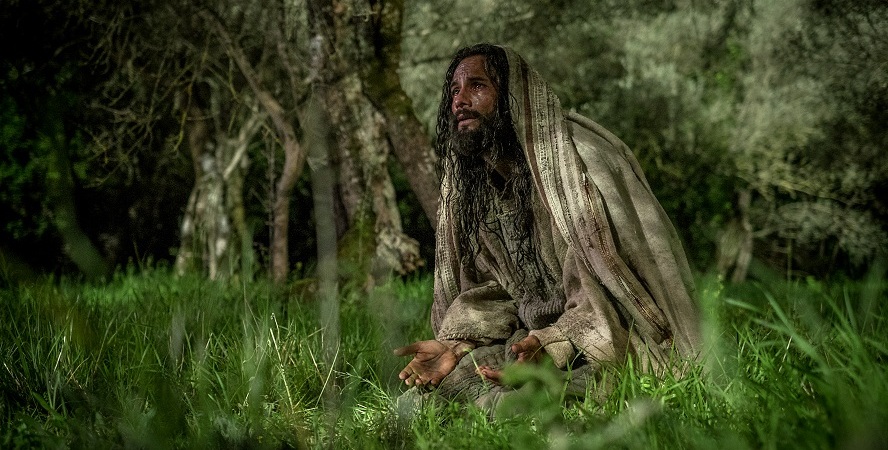
Visuals
For a film which notionally follows along in the footsteps of one of the greatest examples of cinematic spectacle for its time, Ben Hurr does very little to awe its audience visually. The use of CGI throughout is consistently terrible and often times distracting which means big set pieces moments like the chariot race are undermined by their own special effects. Furthermore, the visual direction throughout is almost entirely too restrained during any of the action to really give a sense of scale for an audience to be wowed by it. A prime example of this is the overuse of close-up shots during action sequences. This severely limits the scope of the audience’s view of the action during said sequences and forces us to focus on the lacklustre performances of the actors. I cannot tell you enough just how much it annoyed me to have to watch snippets of a chariot race and ancient naval battle in-between close-ups of Freeman’s and Huston’s unenthusiastic faces. Pretty much every visual decision made in this film just felt wrong and I have no idea what to think of the direction of Bemambetov in this work other than question whether or not he is, in fact, blind.
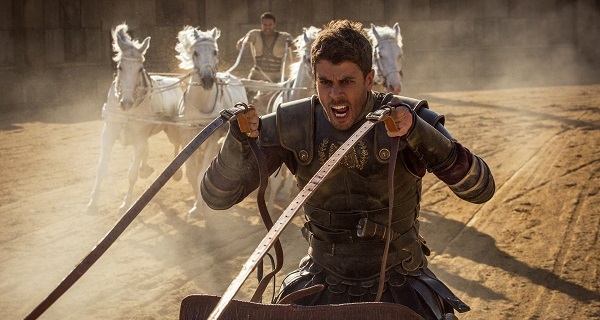
One exception in the first act of the film revolves around the sequences depicting Messala’s service in the Roman army. We see Messala and his cohort fight a number of battles and although we never see more than a couple of seconds of each of these encounters, they left more of an impression on me than anything else in the film. Pretty much everything about these scenes gets the look and feel of the Roman army just right (at least in the popular sense) with beautiful costumes and pretty good camera work. My companion for the screening was particularly enamoured by the shots of legionnaires in their red cloaks fighting in snowy mountains areas. For me, the stand out moment was watching a Roman legion march through the city of Jerusalem as the wide, sweeping shots really reinforced the size of just one of these legions. If Bekmambetov’s has any merit, it’s when he draws the camera back and shows us the action in macro, not micro, perspective.
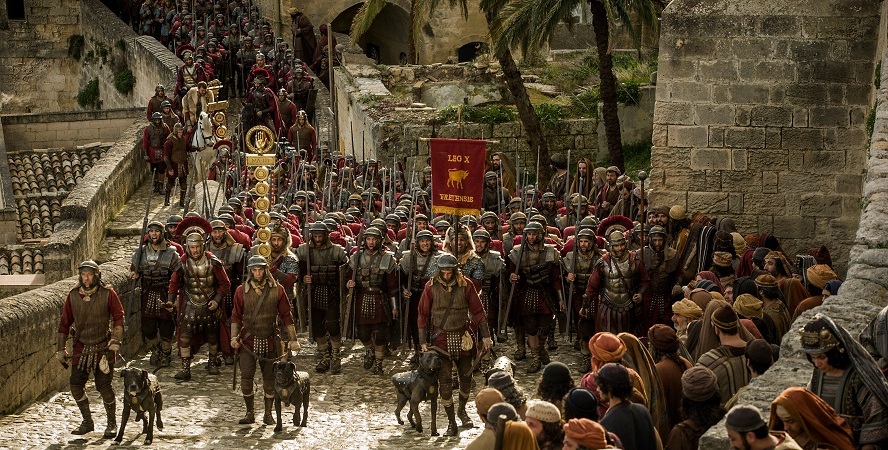
Audio
The film’s soundtrack is largely routine orchestral fair. There is little which stands out or makes an impact throughout the film. That being said, the film did create a nice soundscape for the scene where the Roman legion marches into Jerusalem as the audio background comes alive with Roman marching songs. My companion for the evening, who is an academic on ancient history, did point out that some of the pronunciation of the Latin in this singing sequence was off but I liked the effect regardless of its historical authenticity.
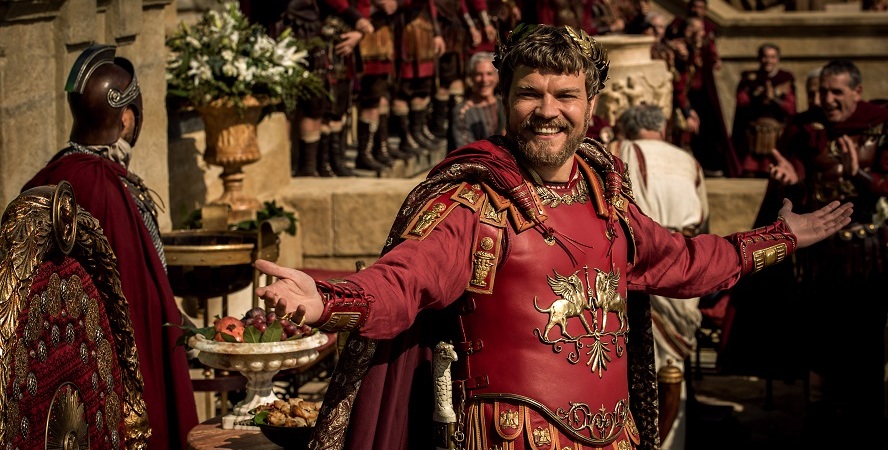
Overall
Overall, this film was severely underwhelming on almost every measure I could apply. The story was almost completely devoid of dramatic impact due to the lacklustre performances given by the actors. The visuals were nowhere near where they needed to be in order to call this film a cinematic spectacle. The film’s soundtrack wasn’t anything special and is one that I doubt will leave an impression on its audience. Pretty much the only parts I liked revolved around seeing the Roman legions fighting onscreen with little or no personal drama other than the life or death struggle of combat. To that end, I’ll recommend that Bekmambetov be allowed to make a swords and sandals epic focusing on the exploits of the Roman legions… but I cannot recommend that you go to see this film.
For another film which does spectacle alot better, feel free to check out my review of Star Trek Beyond.
Capsule Computers review guidelines can be found here.


